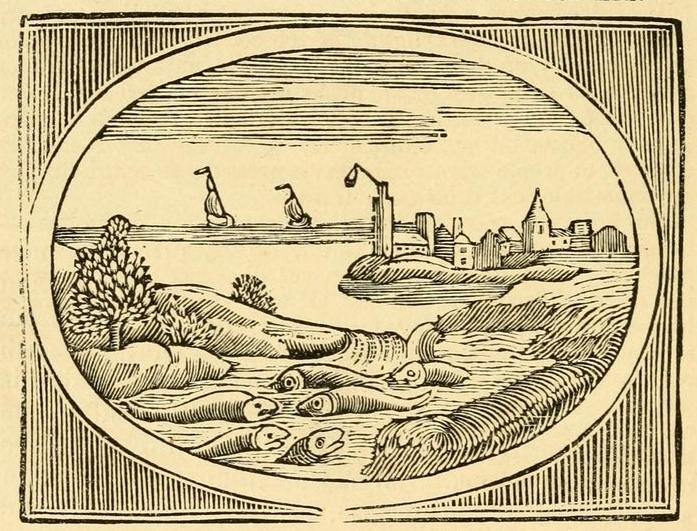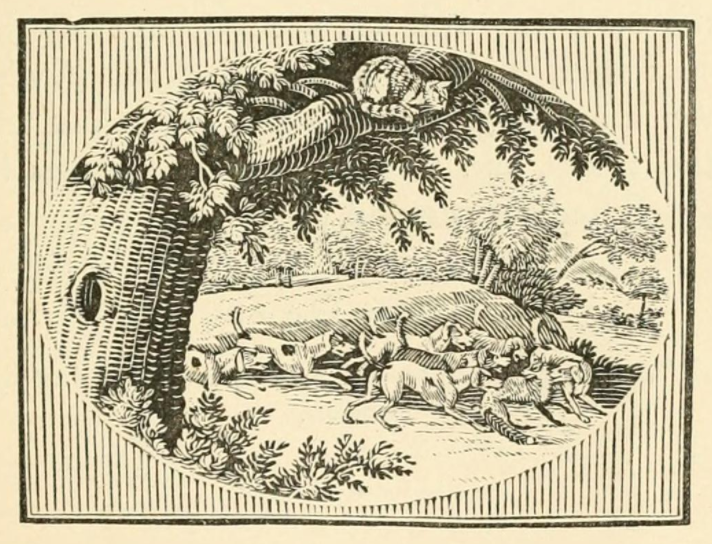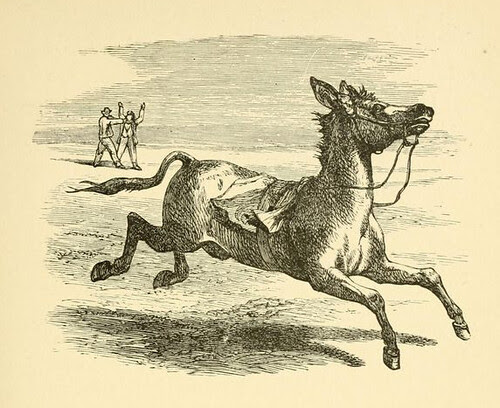81. Of the Fishes
A river fish is borne down by the force of the river into the sea, where extolling his nobility, he valued all the sea race at a low rate. The seal bore not this, but says, then would be a proof of nobility, if tkane he should be carried to market with a seal, that he should be bought by nobles, but he by the common people.
Moral. Many are so taken with the lust of glory that they boast themselves. But the praise of his own mouth is not given to a man for a priase, but is received with the laughter of the hearers.

82. Of the Leopard and the Fox
A leopard, who has a painted back, the other beasts, even the lions, being despised by him, was puffed up. The fox comes to him, persuades him not to be proud, saying, indeed, that he had a fine skin, but himself had a fine mind.
Moral. There is a difference and order of good things: the goods of the body excel the goods of fortune, but the goods of the mind are to be preferred to these.

83. Of the Fox and the Cat
When a fox in a discourse which he had with a cat boasted that he had various shifts, so that he had even a budget full of tricks, but the cat answered that she had only one art to which she trusted if there was anything of danger. While discoursing, suddenly the noise of the dogs running is heard: then the cat leaps into a very high tree; in the meantime the fox, surrounded by the dogs, is taken.
Moral. The fable intimates that comestimes one design, so that it be true and effectual, is better than more tricks, and frivolous designs.

84. Of the King and the Apes
A certain Egyptian king appointed some apes that they should learn the action of dancing. For, as no animal cometh nearer to the figure of a man, so neither any other imitates human actions either better or more willingly. Therefore, presently being taught the art of dancing, they began to dance, clothed in purple vestments, and masked, and the sight now pleased for a long time in a wonderful manner, till noe of the spectators, facetious, threw nuts into the middle, which he had privately in his pockets. Then presently, the apes, as soon as they saw the nuts, having forgot the dance, began to be that which they had been before, and suddenly from dancers returned into apes, and their masks and clothes being torn, they fought among themselves for the nuts, not without the greatest laughter of the spectators.
Moral. This fable admonisheth that the ornaments of fortune do not change the disposition of a man.
85. Of the Ass and the Travelers
Two certain men, when by chance they found an ass in a wood, began to contend between themselves which of them should lead him home as his own, for he seemed equally offered to either by fortune. In the meantime, they, wrangling by turns, the ass withdraw himself, and neither obtained him.
Moral. Some fall from present advantages which they know not how to use through ignorance.

No comments:
Post a Comment
Comments are limited to Google accounts. You can also email me at laurakgibbs@gmail.com or find me at Twitter, @OnlineCrsLady.